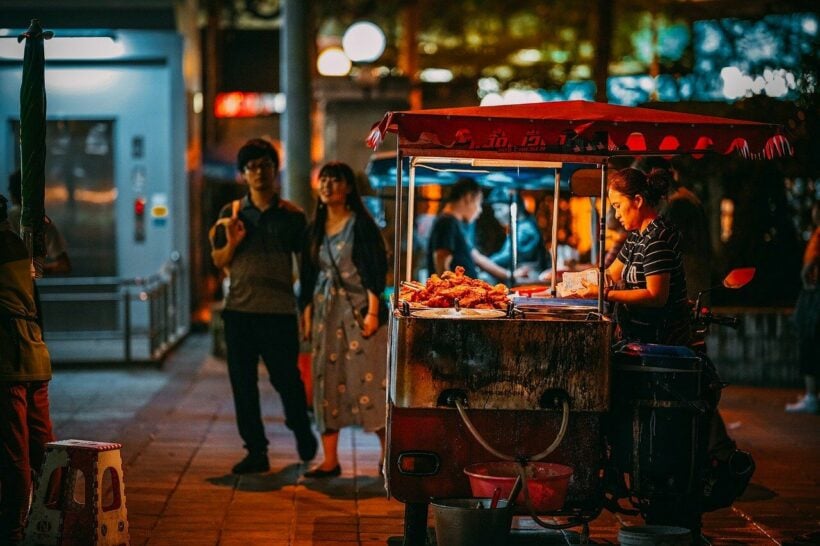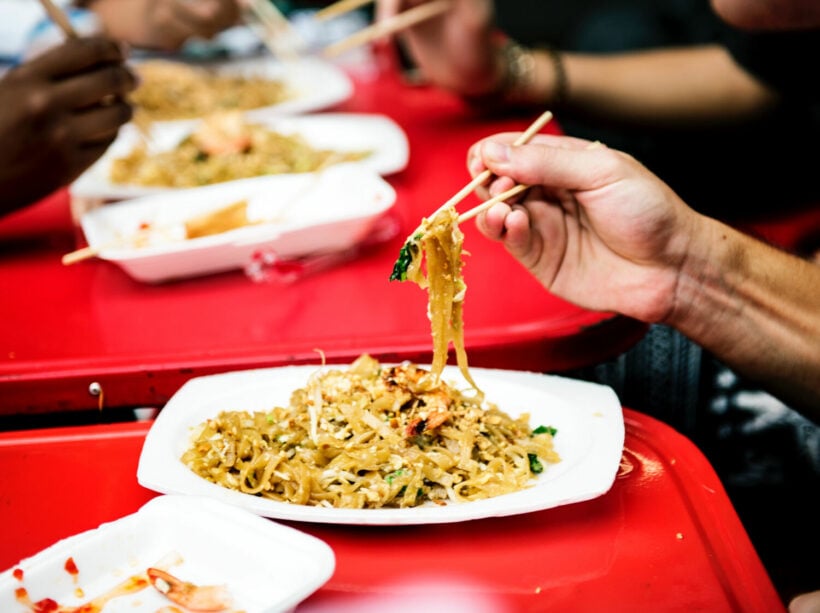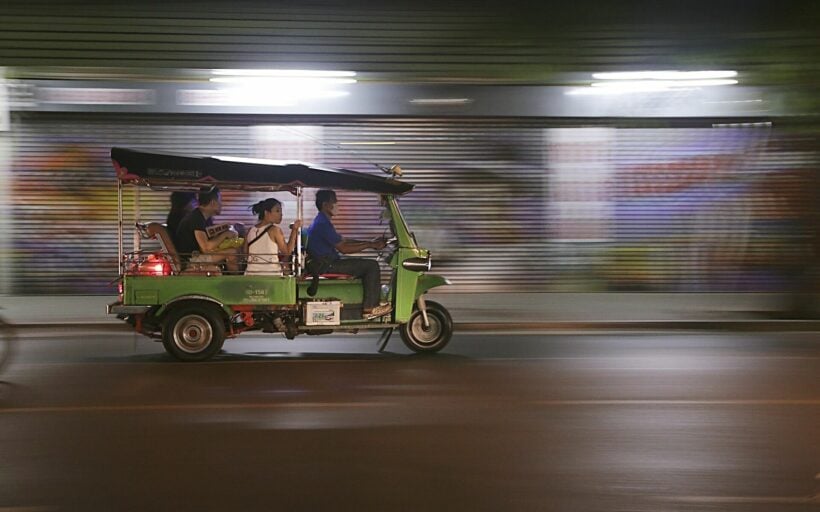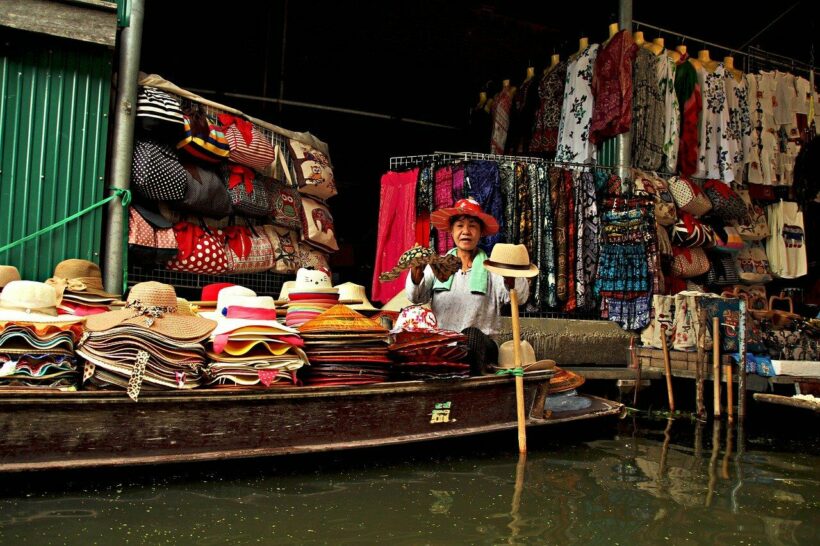Useful Thai phrases for an amazing trip in Thailand

Whether you’re travelling to Thailand for business or leisure, it’s always great to know a little bit of the local language. Learning basic Thai phrases means showing effort and respect to the local culture. It will help ease interactions between you and the locals, making your trip a lot easier and enjoyable. Since Thai is a tonal language, it can be challenging to learn. You’re likely going to make mistakes at first, but don’t let that discourage you. Even if you pronounce something wrong, most locals will still appreciate your effort and may even help you pronounce it the right way.
Below, we’ve compiled some of the most common phrases that you’ll likely use a lot during your time in the Land of Smiles.
The basics
Khap and ka
Before continuing with the greetings and other essential phrases, we should first cover some of the basic rules. To make your sentence or question more polite and respectful, it’s important to end your sentences with the word khap/ka when you are conversing with someone in Thai.
It’s based on the gender of the person speaking, not who you are talking to. So if you are a male, you should finish your sentence with the word khap or krap. If you are a female, be sure to complete your sentence with the word ka. There’s no direct translation of khap/ka in English.
Khun
Khun is a polite way to address a person. You add the word before a person’s name. While it is similar to using Mr. or Ms. in English, there’s no direct correlation to English.
Greetings and essential phrases in Thai
Out of all useful phrases, greeting someone and saying thank you are the most essential Thai phrases you need to know. Mastering these Thai phrases will help connect you a bit more with the people you meet in the country.
Hello – Sa-Wat-Dee
Sawatdee is one word you’ll probably use a lot in Thailand. It’s a way to say hi or hello in Thai, so try to use it to greet anyone who crosses your path. Don’t forget to add khap or ka at the end to make a full, polite greeting. You might butcher the word at first, but don’t worry; most Thais will kindly help you with the correct pronunciation.
Thank you – Khap Khun
If you want to thank someone or be polite, use khap khun krap/ka. If you want to be more polite, try to learn how to perform ‘wai,’ which is a Thai greeting that can also be used as a way to say thank you.
Sorry/excuse me – Kor Toht
You can use kor toht krap/ka as a way to apologise or to ask people for your attention. You can also use it to dismiss yourself from a setting or express condolences.
No problem/it’s alright – Mai Pen Rai
You’ll most likely hear this phrase a lot during your time in Thailand. Mai pen rai is a way to respond to someone’s apology or gratitude. Using mai pen rai tells the other person that they’re not bothering you.
Yes/No – Chai/Ma or Da/Mai Dai
The words yes and no are used differently in different contexts. If someone asks you whether something is right or wrong, use chai (yes) or mai chai (no) to answer the question. However, if someone asks you about your ability to do something, respond with daa (yes – can) or mai dai (no – can’t).
I don’t understand – Mai Kao Jai
When you don’t understand something, just say “mai kao jai.” Upon hearing this phrase, the other person may try to find different ways to explain whatever they’re trying to tell you.
Goodbye – La Gorn
When you part ways with someone, use “la gorn khap/ka” to say goodbye to them. Sometimes, a simple wai might be enough if you’re not confident enough to pronounce the phrase.

Eating and ordering in restaurants/bars
I’m hungry – Hiu
If you want to tell someone that you’re hungry in Thai, just say “hiu” (pronounced hee-yoo).
How much is this dish? – Jarn-Nee Rah-Car Tao-Rai?
Some restaurants and street food stalls may not include the price in their menu. If that’s the case, you can say “jarn-nee rah-car tao-rai?” If the phrase is too long and too hard to pronounce, you can use the shorter version: “tao-rai krap/ka?” (how much?).
Not spicy – Mai Pet
This is definitely the most important phrase to remember if you can’t stand spicy foods. Thai food tends to have lots of chilli and other spices, so if you don’t want to set your mouth and stomach on fire, be sure to learn how to say “mai pet.”
Some restaurants and street food stalls may still put a small number of chilli in your dish even after saying mai pet. Therefore, if you don’t want any chilli in your food, you can say “mai sai prik,” which means “don’t put chilli in my food at all.”
I want it to be very spicy – Ao Phed-Phed
Love spicy food? Say “ao phed-phed” to make sure that your dish is made extra spicy.
No sugar – Mai Sai Nam Tam
Sugar is used in many Thai dishes and drinks, from coffee to noodle soup. If you want to cut some calories or you don’t like sweet drinks, simply say “mai sai nam tam.”
Takeaway – Ao Glub Baan
Want to order something to take home? Say “ao glub baan.” Since ao glub baan literally means “go home,” you can also use the phrase to tell someone that you’re going home.
Delicious – Aroi
If the food is delicious, don’t forget to express some appreciation by saying “aroi!”

Asking for directions
Turn left/turn right/go straight – leo sai/leo kwaa/dtrong bpai
Don’t let anyone rip you off by knowing how to give some basic directions in Thai can. Some taxi drivers may deliberately take wrong turns to make the ride longer, so they get more money from you. Therefore, use Google Map and show them that you know the directions to reach your destination. Being able to direct a driver will save you so much time and money. Use “leo sai” to ask the driver to turn left, “leo kwaa” to turn right, and “dtrong bpai” to go straight.
Can you drive faster? I’m late – Kap Reo Reo Dai Mai, Chan Sai Laew
When you’re late but the driver is slow, use this phrase to ask them to drive faster.
Slow down – Hai Chah Long
Feeling unsafe because the driver is speeding? Say “hai chah long” if you want to ask them to drive slower.
Where is the toilet? – Hong Nam Yoo Tee Nai?
Nothing is worse than having to go to the toilet but not knowing where to find one. Therefore, remember this simple phrase and save yourself from unwanted situations.

Shopping at the market
How much is this item? – An Nee Tao Rai?
Some sellers use the infamous “farang price” for foreigners, which is way more expensive than what a Thai would pay for. Asking the price of an item in Thai can truly reduce your chances of paying double the original price.
Can you give me a discount? – Lot Noi Dai Mai?
When shopping in a traditional market, be sure to negotiate for a discount. In most cases, the seller will give you lower prices!
Do you have it in different colours? – Mee See Eun Mai?
Find something you like, but want it in another colour? Ask the seller if they have the item in different colours by saying, “mee see eun mai?”

These are just a few common Thai phrases that we find helpful. Keep practising before you fly to Thailand, and you’re all set for a fantastic journey. If you find yourself in a situation where you don’t know how to respond in Thai, just flash your best smile!
Latest Thailand News
Follow The Thaiger on Google News:


























